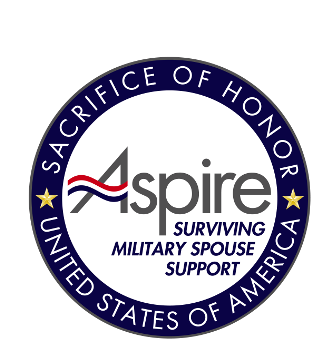About the Program
This program provides financial support to single parents whose spouse was killed or injuried while on active duty on or after September 11, 2001.
With a holistic approach, Aspire is concerned not only about the educational welfare of the recipient, but for their overall well-being.
Surviving military spouses are among America's most economically disadvantaged individuals, a sitation exacerbated by the past decade of global conflicts. They have few opportunities for societal advancement and betterment. The National Veterans Survey of 2010 found that 44% of suviving spouses had incomes under $20,000 - which puts them below the national poverty level.
Our support provides the recipient financial assistance for basic survival needs, thus eliminating the stumbling blocks many single parents face when deciding to attain higher education. The Surviving Military Spouse Support is unique in supplying this type of assistance and breaks down those barriers by equipping recipients with additional support for success.
Aspire's support can be used for anything that would keep a student from going to school or cause them to drop out.
In 2014, Aspire expanded the program to include caregivers of disabled veterans injured on or after September 11, 2001. According to the Veteran Administration's Family Caregiver Program, 11,000 family members are currently enrolled to receive training to care for the medical needs of those injured; however, many of these caregivers have not been afforded the priviledge to attain education beyond a high school level, due to their full-time committment to the United States Military.
The job of caring for severely injured, ill, or disabled Veterans on a daily basis is a demanding task. According to a study titled "The Invisible Side of War: Families Caring for US Service Members With Traumatic Brain Injuries and Polytrauma," "79 percent of caregivers were women, typically the Veteran's parent or spouse. As long as four years after the injury, 22 percent of the patients still required assistance from caregivers with basic activities of daily living such as bathing, feeding, and toileting. An additional 48 percent needed help with higher-level tasks such as shopping, driving, and money management."
Aspire has found that immense financial, educational and emotional support is needed by sole-provider families. This type of support requires a holistic approach. By attaining a post-secondary education, these caregivers will become financially independent.
Our nation's widows, widowers and caregivers of disabled veterans have given the ultimate sacrifice for our country. This is your chance to give back and let them know what their sacrifice has meant to you, your children and your family's freedom. Please donate today or contact our office to find out about exciting volunteer opportunities.

